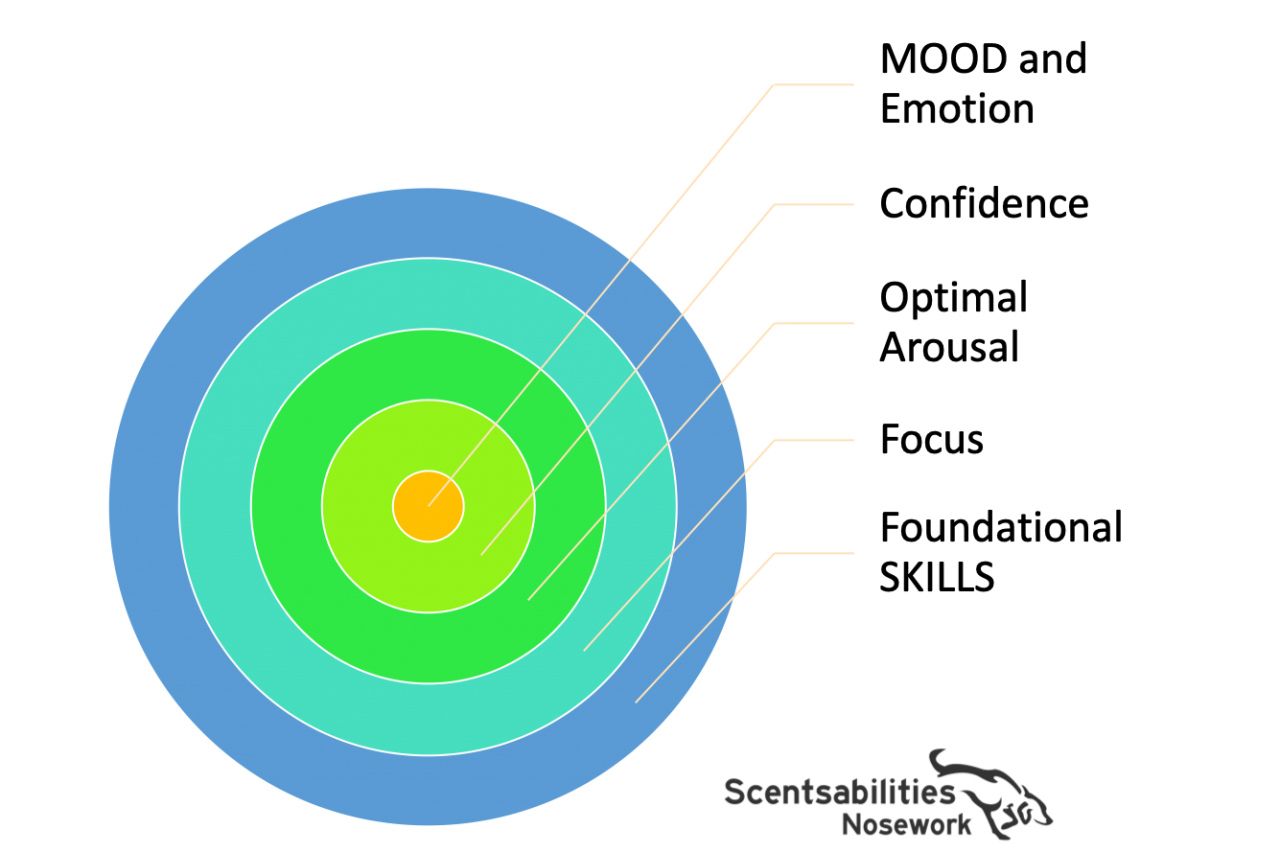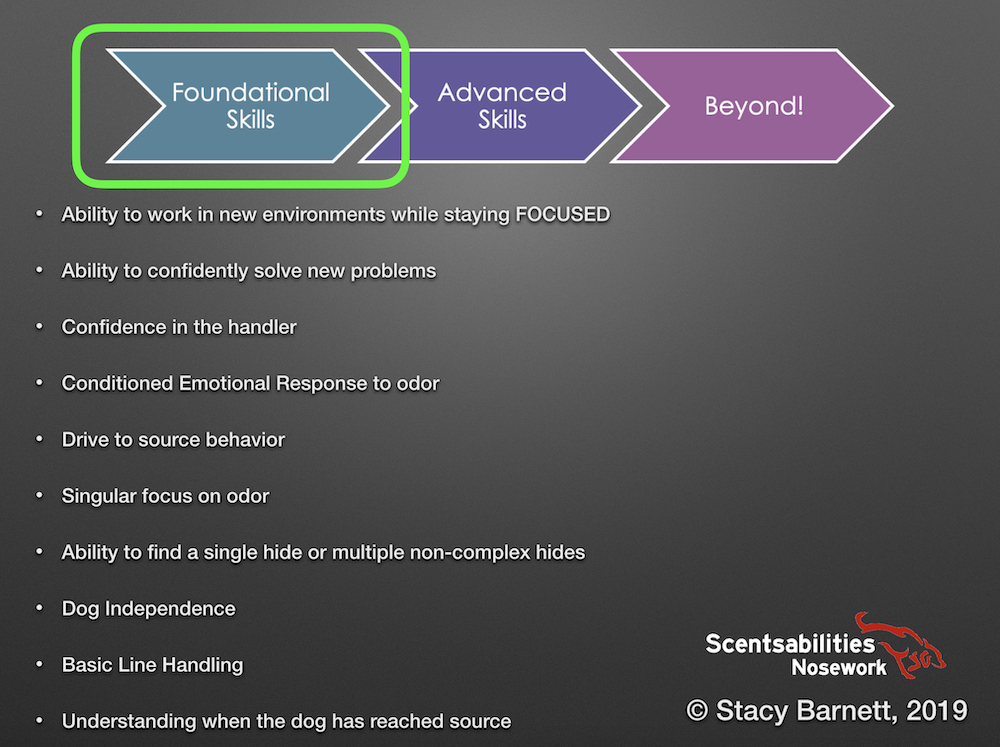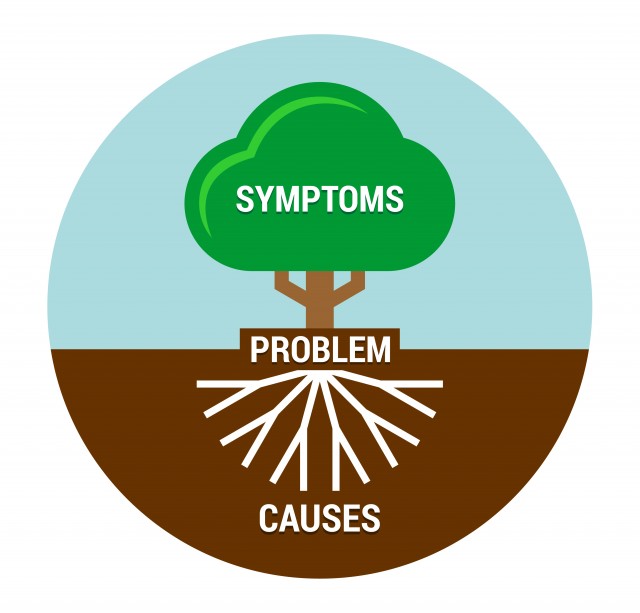What really ARE Nosework Foundations?
So often we throw around the word, "foundations." In fact, when you hear people give advice it usually sounds something like "Just go back to foundations." Often, the advice is well intended, but it lacks substance.
The issue is that the word "foundations" is a buzzword.
Foundations is a Buzzword
What is a buzzword? Well, we all "know" what the term buzzword means (like we all "know" what the term foundations means…) but just to make sure that we are talking about the same thing, let's level set.
From Mirriam-Webster:
Definition of buzzword
1: an important-sounding usually technical word or phrase often of little meaning used chiefly to impress laymen
2: a voguish word or phrase
The thing is that a buzzword is a phrase that lacks substance. It's a phrase that gets kicked around with only cursory understanding of what it means. When we say "go back to foundations," the handler actually gets really very little real information and absolutely nothing that is actionable.
Below Our Foundations, We Need the Essential Elements of a Nosework Team
It's true though! Foundations are usually the answer. In fact there are very few challenges that I've seen that can't be fixed by application of foundational training. However, even that information is useless unless we can say what foundations really are.
Nosework foundations create the basis for building skills. Sure, it includes basic skills, but it also includes the emotional aspect of developing a nosework dog. At the core, the most basic quality that contributes to a successful team is mood and all of the emotional aspects that go along with it. Mood and emotions are like the bottom layer of a large and elaborate wedding cake. At the very top of the cake, where you might see figurines of the happy couple, is a finely tuned, engaged, focused searching dog that is unstoppable and can search anywhere and everywhere with absolute confidence and laser-focused purpose, even in the most challenging environments and under extreme time pressure. How we get there is reflected in the many supporting layers that paint and carve a picture of the dog's developmental journey.
Without experience from previous dogs or an innate and finely tuned crystal ball, the handler is left guessing about how to guide their dog and support them in the journey. When we use buzzwords to communicate, we can actually block understanding because we remove all power from our words.
Language is critical in developing our understanding of a body of knowledge. So to get our dogs off in the right direction, we need to make sure that we understand what the foundations of nosework are.
But before we can talk about foundational skills, we need to first talk about the essential elements that are critical in making or breaking a nosework team.
At the core is MOOD and EMOTION. This is where we establish the dog's receptivity to searching and training. When you are happy, so is your dog! A happy and joyful dog is set up for success in searching. In fact, just smiling can improve your chances of a good search!
CONFIDENCE is all about making sure that your dog is comfortable with his surroundings and adequately acclimated. Equally important is your dog's self confidence in his own capability and his confidence in you based on your training history.
OPTIMAL AROUSAL allows the dog to focus and work effectively. This can mean the difference between ho-hum-yawn and WOW! This also means that any anxiety that the dog may be feeling has been relieved.
FOCUS means that the dog is intent on only searching and only on target odor. Building on more core capabilities, the dog learns to not focus on either the handler or the environment, but rather only on the search!
FOUNDATIONAL SKILLS are what we usually think of when we think about foundations. Does the dog understand source? Does the dog know how to recognize and follow target odor?
Back to Foundations: The Skills Nosework Dogs Need
According to the way I teach, these are the important foundational skills:
Why is this important?
The rubber meets the road when we start to problem solve for issues that crop up in our training. Without a roadmap, we tend to focus on addressing the pain that we are feeling rather than understanding what is driving the pain to begin with.
We focus on the PAIN rather than using the SYMPTOMS to identify CAUSE.
The Pain is what we can see and feel. The Cause may be something else entirely and is usually related to some sort of Foundation. The roots of the problem is the Cause, but what we see and feel are the Symptoms.
What this means is that we need to know WHAT are the Foundations and WHEN to focus on them.
And THAT is how we craft a top Nosework Dog.
I'm teaching a NEW class in December that will focus on shoring up and developing incredible Foundations in both green and experienced teams!
By accepting you will be accessing a service provided by a third-party external to https://www.fenzidogsportsacademy.com/


